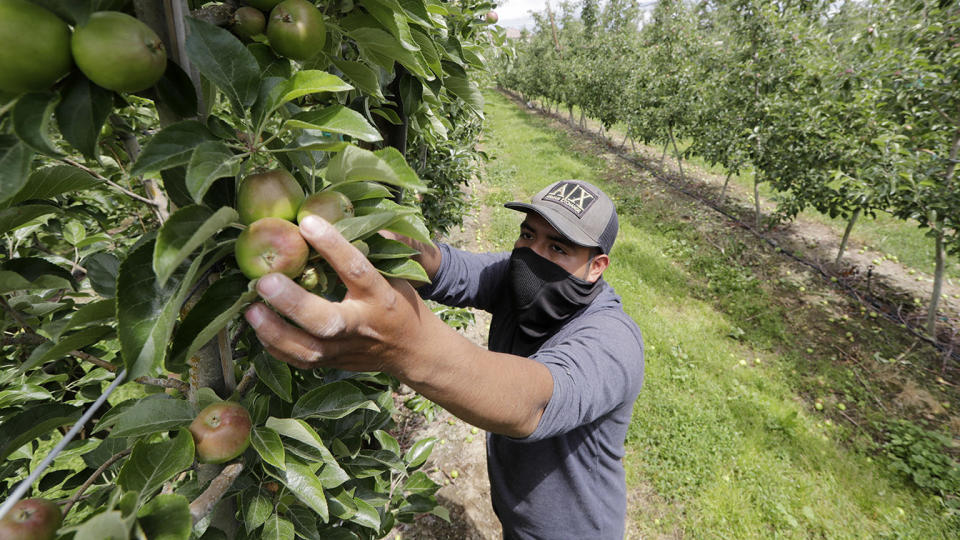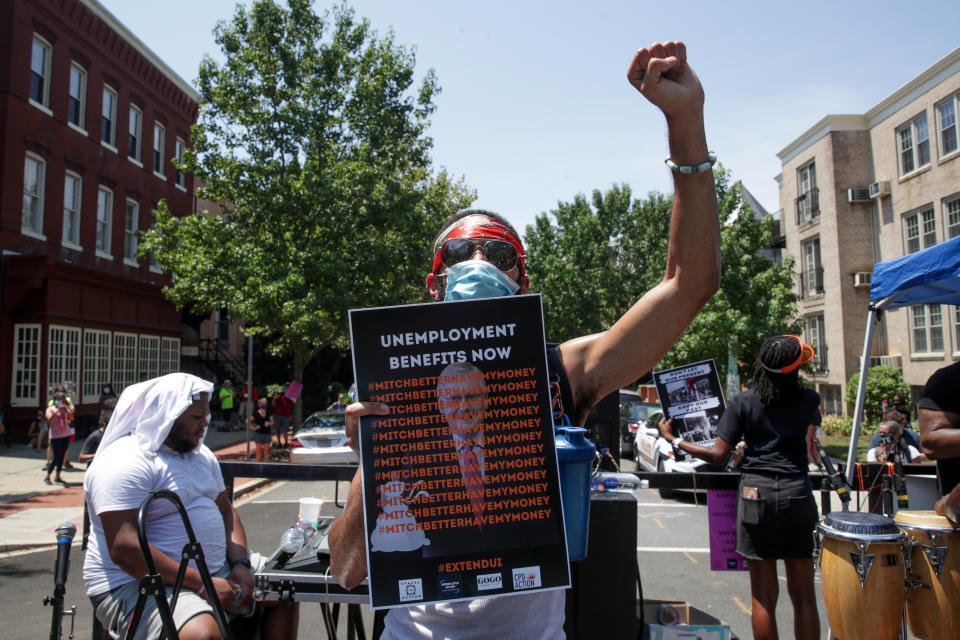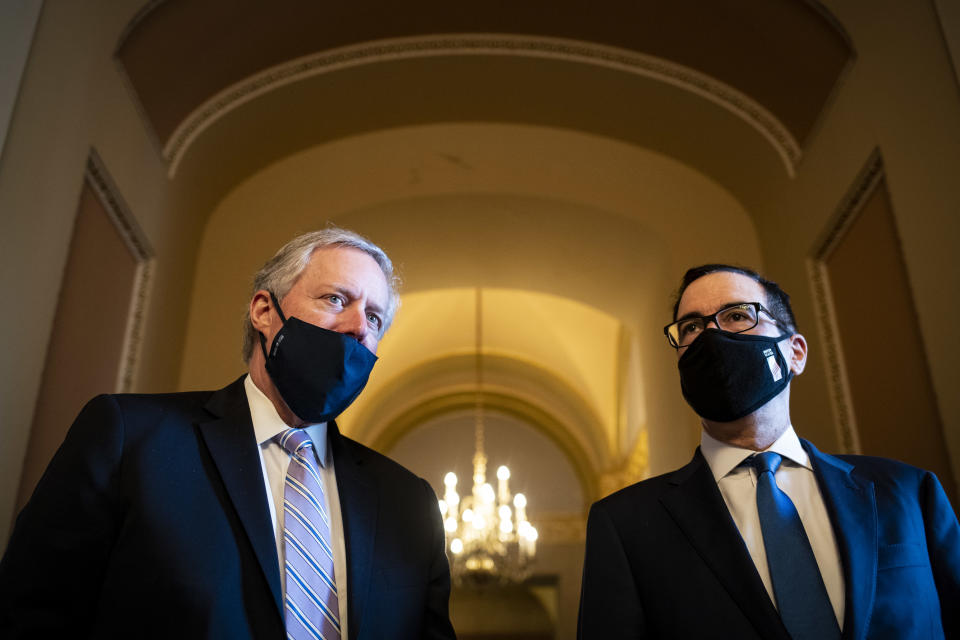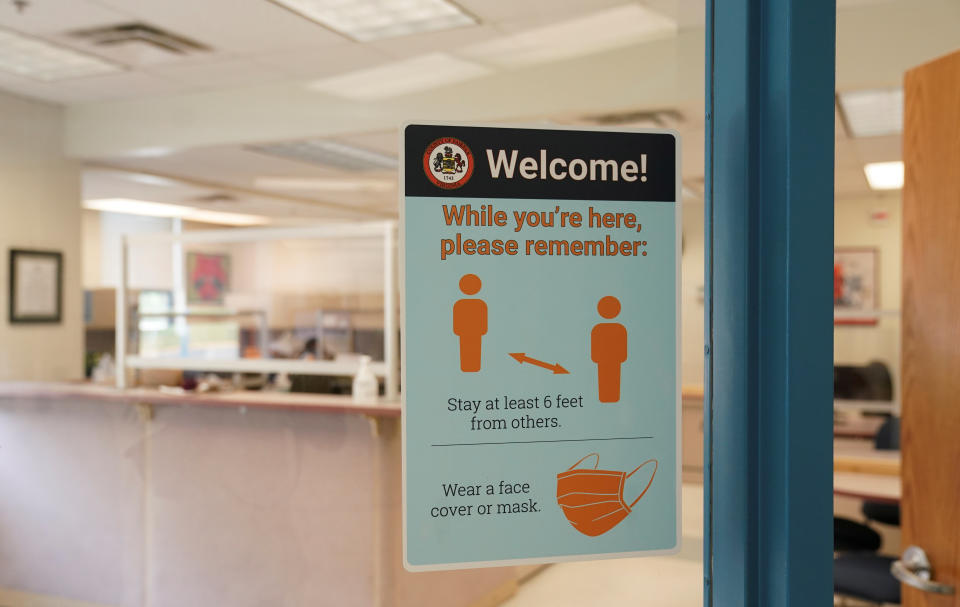Republican coronavirus relief bill includes no local aid, smaller unemployment benefits and $20 billion for farmers
WASHINGTON — The White House is pushing for the new coronavirus relief bill to include $20 billion in direct payments to farmers, among other measures that may complicate negotiations with Democrats as Congress rushes to pass the $1 trillion stimulus package, according to a draft plan obtained by Yahoo News.
The bill is designed to provide a new round of stimulus payments, unemployment benefits and Paycheck Protection Program loans for small businesses, but as with the first relief package, the two parties are clashing over the size of payments, among other details. The payments for farmers are bound to be particularly controversial, since Democrats in the past have accused President Trump of using this aid to benefit part of his voting base.

Democratic aides who spoke with Yahoo News blasted the Republican plan, a draft of which has been circulating on Capitol Hill over the past day, particularly since the amount of unemployment aid would be smaller than the previous $600 weekly payments that went to some of the record numbers of people who lost their jobs due to the pandemic. A senior Democratic Senate staffer who has seen the plan described it as “woefully inadequate.”
“We’ve seen this movie before,” said the staffer, who requested anonymity to discuss ongoing policy negotiations. “This is a continuation of an underwhelming Republican response to the greatest public health and economic challenge we’ve seen in our lifetimes.”
The plan, which was first published by the New York Times Thursday afternoon, does not specify the size of direct stimulus payments people would receive. “These will be included, but the amount of the payment and eligibility criteria are TBA,” the plan says.

It also does not outline the size of the unemployment benefits beyond saying they would probably be lower than the previous $600 weekly benefit, which is set to expire at the end of this month.
“There will be some type of extension of the enhanced benefit, but likely not $600 a week. There will be a transition period during which there will be a flat amount of extra UI per week. After that, there will be a new policy that better aligns with an individual’s lost income (possibly by multiplying a person’s state benefit) but will cap out at 100 percent of income,” the plan says.
The Republicans’ proposal also does not provide any additional aid to local governments but notes that some would get provided “in negotiations” with the Democrats.
Senate Republicans and the White House are currently working together to finalize the $1 trillion stimulus plan. GOP leaders and the Trump administration reportedly agreed to major details of the plan on Wednesday. It is not clear whether the draft proposal is final. A Capitol Hill source and the senior Democratic Senate staffer both said the document was a draft of the Republican and White House plan that leaked out in the past day.
“It is a draft that is floating around the Hill that is not supposed to be floating,” the senior Senate staffer quipped.
David Popp, spokesman for Senate Majority Leader Mitch McConnell, declined to comment on the Republican proposal.
The White House did not immediately respond to requests for comment on the proposal. Treasury Secretary Steven Mnuchin told reporters on Capitol Hill that the Republican plan would extend supplemental unemployment benefits, although not at the current $600 level.

“We realize there are a lot of hard-working Americans, because of COVID, still won’t have jobs, and we do not want that to expire,” Mnuchin said. “On the other hand, we’ve said we were in a different situation last time.”
Mnuchin’s remarks echoed the plan for unemployment benefits in the draft proposal. After some delays, GOP leaders have said they hope to release details of a final plan in the coming days.
This draft proposal details $20 billion in “direct payments to farmers” as well as “a more generous PPP calculation for farmers and ranchers based on their 2019 gross income.” Under the proposal, there would also be a second round of PPP loans for “businesses under 300 workers or within the [Small Business Administration] size threshold for their industry that can demonstrate 50 percent lost revenue compared with a reference period.”
The plan also proposes “a new working capital loan offered for businesses under 300 workers that is an alternative to a second round of PPP,” specifying that businesses “can’t double dip” in both loan programs.
Additionally, there is funding for efforts to fight the coronavirus in the plan, including $25 billion for testing, $26 billion “for vaccine research, distribution, and use,” $1.3 billion “for workplace training on social distancing,” $15.5 billion to the National Institutes of Health for “labs/research” and $25 billion for the “hospital/provider fund,” among other things.
The proposal devotes $105 billion to help schools recover from the pandemic, including $70 billion for “K-12,” though $10 billion of that would go to private schools.

Steps to protect businesses from coronavirus lawsuits are also included in the proposal. Specifically, it provides for an “exclusive federal cause of action that applies to litigation against any business, non-profit, school, medical provider, or medical professions arising from COVID.” It would limit potential damages awarded in lawsuits and raise the standards for determining negligence.
The limits on aid and efforts to curb lawsuits show that the Republicans are “more focused on protecting businesses than protecting people,” the senior Democratic Senate staffer told Yahoo News.
The proposal is “not taking seriously the pain people are feeling right now, and it’s not nearly enough to stop the economic hemorrhaging and the devastation being wrought by the coronavirus,” the staffer said.
_____
Read more from Yahoo News:


